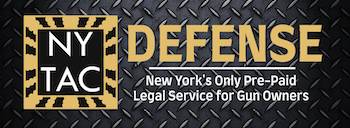Representation.
Consumption of an Alcoholic Beverage in a Motor Vehicle
It is illegal to consume an alcoholic beverage or possess an open container which contains an alcoholic beverage in certain motor vehicles located on public roadways, according to the New York State Vehicle and Traffic Law (VTL). If you have been charged with violating the open container law, call our experienced team of New York criminal attorneys today.
Section 1227 of the VTL provides for a potential conviction for not only the driver of the vehicle in which the open container is located but also any passengers. Any person convicted of violating this section is guilty not of a criminal offense, but of a traffic infraction. It does not matter whether the vehicle was being operated or was parked at the time of the alleged violation. On their own, without any additional charges, allegations of violations of the open container law are typically handled in the local city, town, and village courts. While violating the open container law is considered only a violation, there are serious implications which can result from such a conviction. A conviction for violating the open container law can lead to fines and even short jail sentences such as fifteen (15) days or less.
Not only does violating the open container law lead to its own implications for those involved, but a violation of the open container law can lead to suspicion you have been drinking while driving. If a police officer lawfully notices an open container in your vehicle, the police officer may be able to ask you to conduct field sobriety tests to determine whether you are under the influence of alcohol. There have been cases in which the driver of the vehicle was stopped for unrelated traffic offenses such as speeding when the police officer conducting the stop noticed an open container. The open container led to suspicion the driver had been drinking and was possibly under the influence while driving. The existence of the open container led to a proper conviction of the driver for drunk driving. As one should know, a conviction for driving while intoxicated has very serious implications for the person involved. Please see our article on DWI/DUI for more information on the various charges and potential implications for a person convicted of these serious crimes.
There are a few exceptions to the open container law. One of which is if the open container is in the trunk of the vehicle if the vehicle has a trunk. If the vehicle does not have a trunk, the open container must be behind the last upright seat or in an area not typically occupied by the driver or passenger. Another exception is a passenger vehicle operated with a certificate or permit issued by the New York State Department of Transportation or the United States Department of Transportation. A passenger vehicle means a vehicle designed to transport ten or more passengers and operated to carry passengers for profit.
If you have been charged with violating the open container law, call our experienced team of New York criminal attorneys now.

















